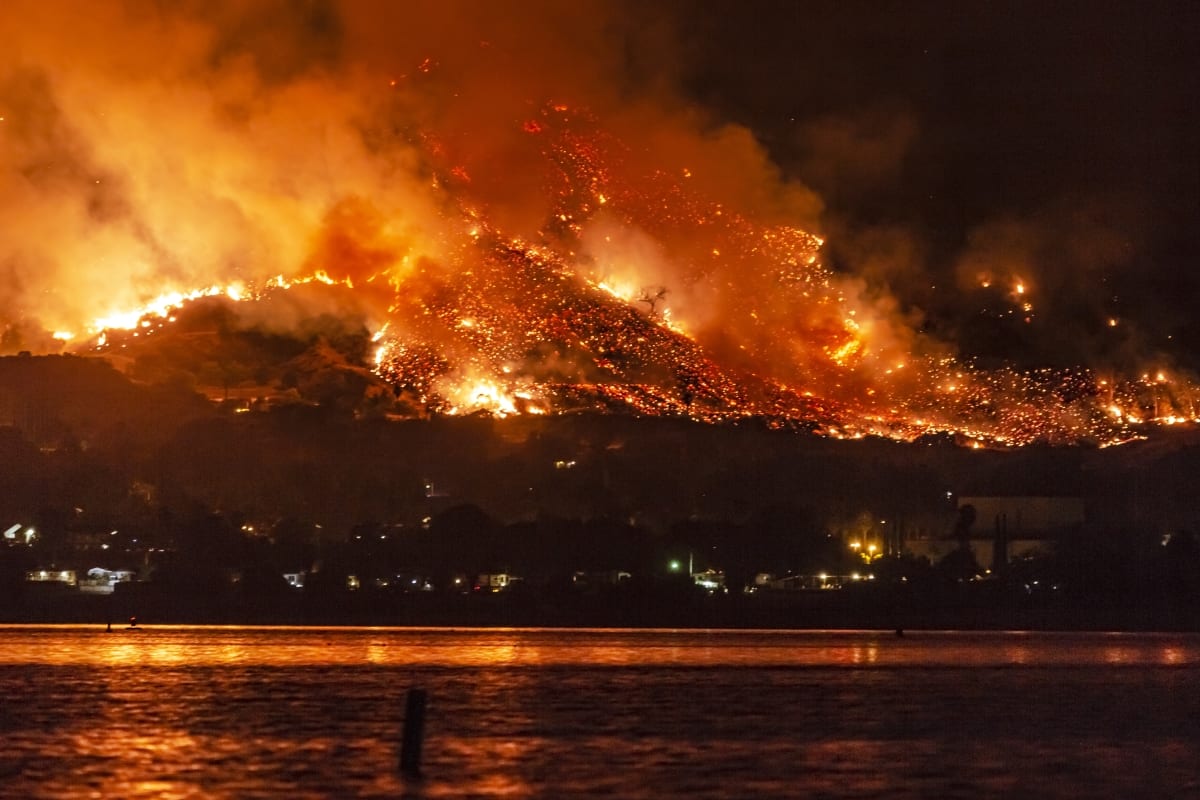Does Homeowners Insurance Cover Wildfires?

Does Your Homeowners Insurance Cover Wildfires?
Does your homeowners insurance cover wildfires? Maybe, maybe not.
If you live in an area that is particularly at risk for wildfires, you may have trouble finding the insurance you want.
Insurance companies can decide it is too risky for them and can:
- Purposefully exclude wildfires from a policy
- Deny renewals
- Quit offering wildfire insurance altogether
- Require a separate wildfire deductible
- Set higher premiums
What Homeowners Insurance Usually Covers
Check your homeowners insurance to see if it covers damages caused by wildfire, not just regular fires. Other protections include:
Dwelling & Structures Coverage – This coverage helps pay the cost of repair or replacement of your home as well as any other structures on the property, such as storage sheds and your garage. It kicks in when your house sustains damage from fire or other covered peril. Keep in mind that
- If you live in a high-risk area, be sure to set coverage high enough to replace or rebuild
- If your entire neighborhood sustains losses in a fire, you may not have enough coverage large enough to cover rebuild. This is because when a sharp increase in demand for construction occurs, construction costs also rise.
Personal Property Coverage –Homeowners insurance usually covers items such as electronics, furniture and clothing.
Landscaping Coverage – Typically homeowners insurance also offers limited coverage for the plants, trees, shrubs and so forth. Be prepared for the worst with a thorough inventory of your personal property.
Loss of Use Coverage – If your home has been ravaged by a fire and is uninhabitable, your insurance helps with expenses incurred when you must rent another house or a hotel room and food while your house is being 0repaired or rebuilt.
Fire Department Charges – It’s likely that your homeowners insurance policy will help you pay any service charges you receive from the fire department, up to a limit.
Endorsements that Extend Limits – Endorsements that can be added to your policy to raise the limit if your standard policy wouldn’t be enough to cover damages. These endorsements can extend replacement cost coverage by up to about 50 percent. You can also add guaranteed replacement cost coverage which replaces your home despite an increase in construction and rebuilding costs.
States at Higher Risk
Most years, California tops the list of the Top 10 states. According to the Insurance Information Institute (III), as of September 2019 an estimated 2,019,800 properties were considered at risk in California.
Top 10 States at High to Extreme Wildfire Risk, 2019 (1)
|
(1) As of September 2019.
Source: Verisk Wildfire Risk Analytics used data from FireLine®, Verisk’s wildfire risk management tool.
How Wildfires Get Started
As it turns out, people are the biggest cause of wildfires in the United States. Up to 90 percent of these fires are the result of:
- Unattended campfires
- Discarded cigarettes
- Downed power lines
- Arson
Ten percent of wildfires are started by nature, usually lightening or lava.
How Risk of Fire is Measured
Wildfire-prone areas are classified according to measured risk. These are called fire protection classes, numbered one through ten, with a number one classification the highest risk. An independent company makes fire protection ratings based on:
- How many fire trucks are available
- Number of working firefighters available
- Amount of water pumped per minute
- Firefighter response time
- Distance to a fire station
- Equipment available
- Access to nearby fire hydrants
How to Prepare for Wildfires
Protect your home from wildfires as best you can. Some steps you can take include:
Create and maintain a defensible space – Depending on your state’s regulations, a defensible space 30 to 100 feet from your home. Regularly remove dead vegetation in the space, mow the grass often and plant foliage and trees apart from each other. You can also replace plants with fire-resistant ones.
Construct or update your home with fireproof materials – If the home is already built, whenever you remodel or update use nonflammable materials whenever possible. These can include roofing, fencing, exterior walls. Exterior wood can be protected with fire-retardant finishes.
Keep debris out of the roof gutters – Regularly clean out the gutters of debris.
Trim trees – Prune tree limbs that extend over your property.
Maintain the yard – Mow and water regularly, clear the yard of debris such as dead vegetation and use fire-resistant plants.
Use the right windows – Replace windows with double-paned or tempered glass windows.
Store flammable items away from your house – Do not keep firewood and propane tanks by your house. Don’t lean these items against your home or below porches and decks.
Options for Coverage
If you live in an at-risk area and your homeowners insurance will not cover wildfires, there are options to consider.
FAIR Plans
Fair Access to Insurance Requirements Plans (FAIR Plans) are designed to cover risky areas prone to natural disasters when traditional insurance will not provide coverage . Each state can have different types of coverage, depending on what specific reason that area is at risk.
Pros: You can get coverage.
Cons: You may pay higher premiums for less coverage.
Alternative Insurance Companies:
Premier Carriers
A premier insurance company covers properties worth more than $1 million. These kinds of policies offer benefits including coverages like:
- Private firefighters
- Loss prevention
- Other expensive assistance
Surplus Insurance
Like premier carriers, surplus coverage provides special policies for at-risk properties that standard insurance companies won’t cover.
Find Policies that Cover Wildfires
If you need to find a policy that will cover wildfires at the best price, you can get quotes from several providers using our fast and easy quote tool. Just enter the information requested and receive your quotes.

 EINSURANCE
EINSURANCE EINSURANCE
EINSURANCE EINSURANCE
EINSURANCE